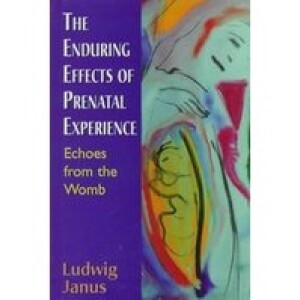
- Podcast Features
-
Monetization
-
Ads Marketplace
Join Ads Marketplace to earn through podcast sponsorships.
-
PodAds
Manage your ads with dynamic ad insertion capability.
-
Apple Podcasts Subscriptions Integration
Monetize with Apple Podcasts Subscriptions via Podbean.
-
Live Streaming
Earn rewards and recurring income from Fan Club membership.
-
Ads Marketplace
- Podbean App
-
Help and Support
-
Help Center
Get the answers and support you need.
-
Podbean Academy
Resources and guides to launch, grow, and monetize podcast.
-
Podbean Blog
Stay updated with the latest podcasting tips and trends.
-
What’s New
Check out our newest and recently released features!
-
Podcasting Smarter
Podcast interviews, best practices, and helpful tips.
-
Help Center
-
Popular Topics
-
How to Start a Podcast
The step-by-step guide to start your own podcast.
-
How to Start a Live Podcast
Create the best live podcast and engage your audience.
-
How to Monetize a Podcast
Tips on making the decision to monetize your podcast.
-
How to Promote Your Podcast
The best ways to get more eyes and ears on your podcast.
-
Podcast Advertising 101
Everything you need to know about podcast advertising.
-
Mobile Podcast Recording Guide
The ultimate guide to recording a podcast on your phone.
-
How to Use Group Recording
Steps to set up and use group recording in the Podbean app.
-
How to Start a Podcast
-
Podcasting
- Podcast Features
-
Monetization
-
Ads Marketplace
Join Ads Marketplace to earn through podcast sponsorships.
-
PodAds
Manage your ads with dynamic ad insertion capability.
-
Apple Podcasts Subscriptions Integration
Monetize with Apple Podcasts Subscriptions via Podbean.
-
Live Streaming
Earn rewards and recurring income from Fan Club membership.
-
Ads Marketplace
- Podbean App
- Advertisers
- Enterprise
- Pricing
-
Resources
-
Help and Support
-
Help Center
Get the answers and support you need.
-
Podbean Academy
Resources and guides to launch, grow, and monetize podcast.
-
Podbean Blog
Stay updated with the latest podcasting tips and trends.
-
What’s New
Check out our newest and recently released features!
-
Podcasting Smarter
Podcast interviews, best practices, and helpful tips.
-
Help Center
-
Popular Topics
-
How to Start a Podcast
The step-by-step guide to start your own podcast.
-
How to Start a Live Podcast
Create the best live podcast and engage your audience.
-
How to Monetize a Podcast
Tips on making the decision to monetize your podcast.
-
How to Promote Your Podcast
The best ways to get more eyes and ears on your podcast.
-
Podcast Advertising 101
Everything you need to know about podcast advertising.
-
Mobile Podcast Recording Guide
The ultimate guide to recording a podcast on your phone.
-
How to Use Group Recording
Steps to set up and use group recording in the Podbean app.
-
How to Start a Podcast
-
Help and Support
- Discover

Happy Children Don’t Make Wars: Dreamlike Consciousness of Birth Trauma, the Prenatal Experience, Psychoanalysis and Lived Life with Dr. Ludwig Janus
In this podcast, you will find prominent voices, psychoanalysts, psychologists, therapists, philosophers, and thought leaders talking about a variety of mental health concerns and problems including how to not only deal with anxiety, depression, and chronic conditions but also how to thrive by becoming more resilient and more emotionally engaged and invested in life.
In this episode, I have the great pleasure of speaking with Dr. Ludwig Janus, psychoanalytic and prenatal-oriented psychotherapist, author of the book “The Enduring Effects of Prenatal Experiences: Echoes from the Womb” on how prenatal and perinatal experiences shape and influence human psychology.
Our birth is a real experience that not only occurs on an individual level but also forms a collective part of psychohistory, which includes a rich and whole range of experiences that are preverbal and become part of our implicit memory.
In traditional psychoanalysis, Freud’s unconscious included the “inner child” whereas Adler posited the minority complex and the drive to power, it was Rank who put birth trauma on the map and into our conscious field stating that it is possible to go through the birth process without losing oneself.
Yet, there are different types of therapy to address birth trauma, such as regression therapy, primal therapy, and others, to effectively get to the root of the issues, which can stem from various factors and conditions like medical interventions, feelings of stress and anxiety during pregnancy, socioeconomic conditions, or due to feeling unwanted or unwelcome in the family.
These negative prenatal and perinatal experiences remain in our unconscious and can lead to neuroticism, and anxiety, and even be the cause of violence and cruelty as demonstrated by murderers and notorious political leaders around the world. The antidote is to create loving and peaceful conditions during pregnancies as well as a supportive environment in the outer world via caring and accepting parents.
That can be achieved through bonding analysis and the prenatal relations of mother and child. If there is bonding, connection, and empathy before birth, the child has a feeling of and right to existence with a basic autonomy which would essentially increase self-confidence and self-esteem by turning the trauma of birth into a call for adventure.
More Episodes
Create your
podcast in
minutes
- Full-featured podcast site
- Unlimited storage and bandwidth
- Comprehensive podcast stats
- Distribute to Apple Podcasts, Spotify, and more
- Make money with your podcast
It is Free
- Privacy Policy
- Cookie Policy
- Terms of Use
- Consent Preferences
- Copyright © 2015-2025 Podbean.com






